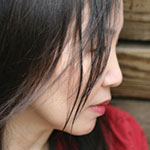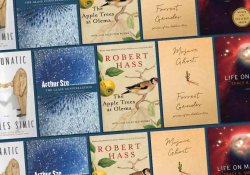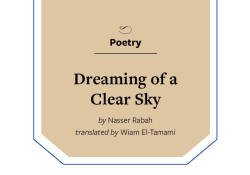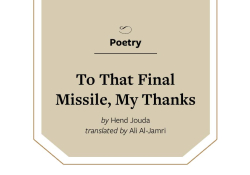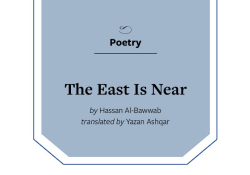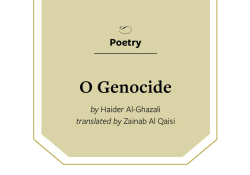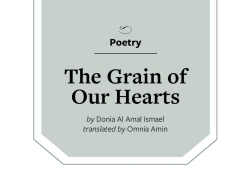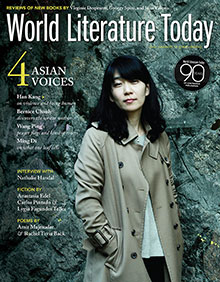Two Poems
What One Leaf Tells
In the wind, questions to heaven bang
the white poplar. Answers fracture –
a thousand white leaves. A thousand
blameless mouths. A thousand. Ten
thousand colorless excuses;
I pick one up. Grip tightly
as though holding the whole
tree. Indeed, Qu Yuan says, the leaf,
more than the tree, tells the truth
about the tree. Indeed, Tang people
say the leaf lays bare great secrets
of autumn. But all I see is one leaf.
口十 leaf or leaves
The image is a deconstruction of leaves. The character “leaf” is made of two parts, mouth 口 and ten 十. Kou (mouth) is a component of jiekou (excuse) and koushi (evidence); shi (ten) is a pun with shi (truth) in Chinese.
Birdisland
All day I daydream, an island so quiet
in water that even the water
doesn’t know I am here. A bird rises
over a peak where I awake. Winding below
is my body, four limbs, a river. All
night my eyes open wide, dark,
like the shadow of a bird’s
eyes reflecting in water. The eyes
of the bird open in mine, dark. Above
me a bird island is singing light
and sun-filled, good morning. With my
eyes in its eyes the bird sees what I see:
my home with coconut trees and
bananas. But it longs to leave me,
dreaming its own daydreams, in midair
becoming its very own island.
鸟 niao bird
岛 dao island
These two words resemble each other in shape, and both contain an eye. They differ in that “island” has a mountain 山 inside its body. Both echo in sound with hao (good) and zao (morning) in Chinese.
Translations from the Chinese
By Carolann Caviglia Madden with the author


